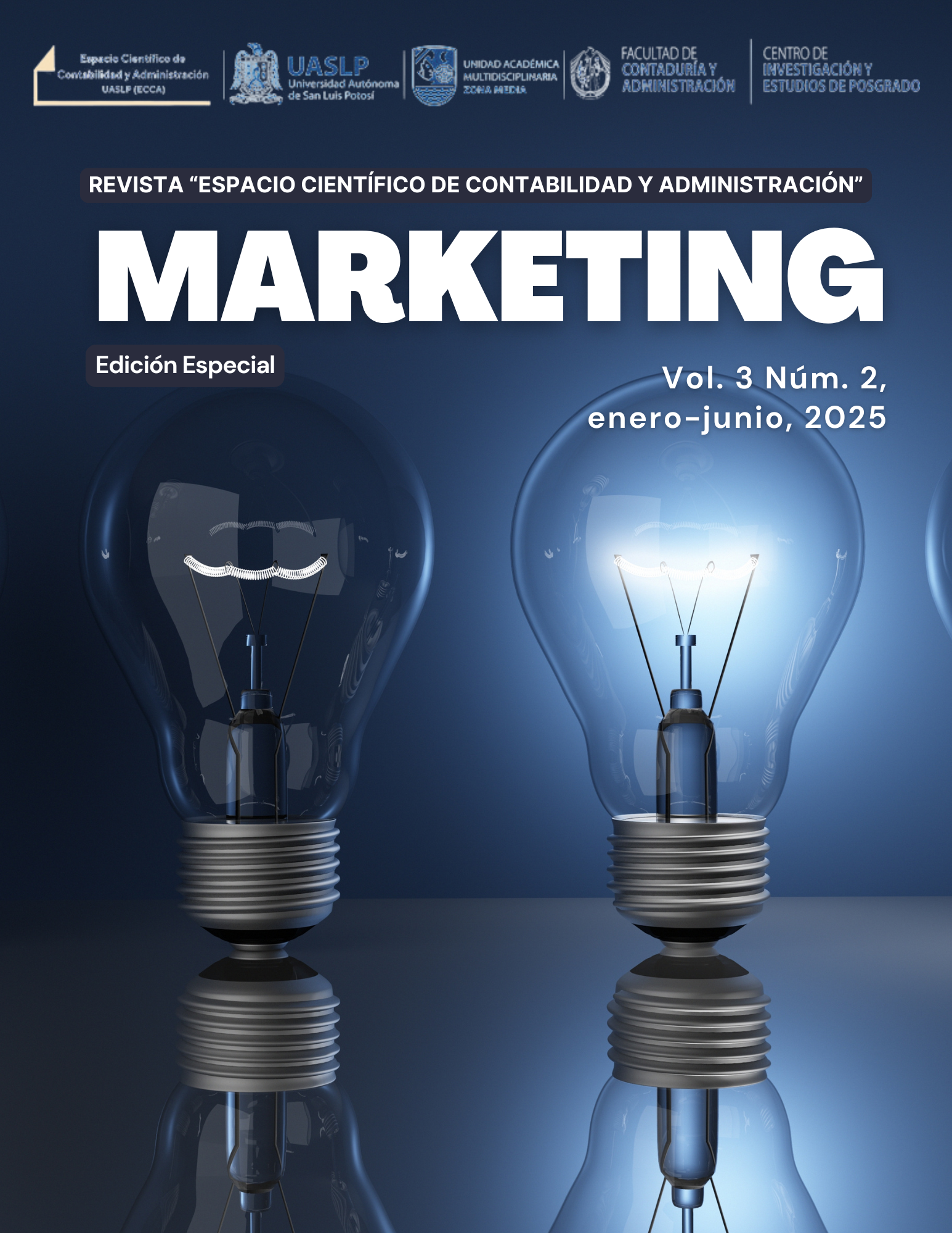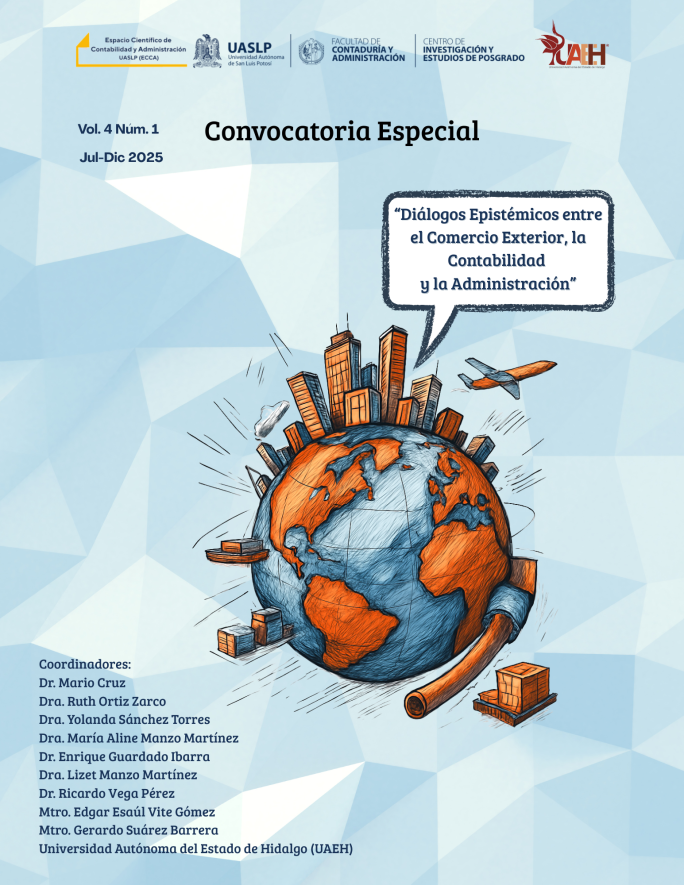The Social marketing as a fundraising tool: The case of TELETON in Hidalgo, Mexico.
DOI:
https://doi.org/10.58493/ecca.2025.3.2.03Keywords:
social marketing, fundraising, social responsibility, non-profit organizations, DISABILITY, TelethonAbstract
Social marketing represents a fundamental tool for nonprofit organizations in their fundraising efforts. In this context, Teletón campaigns have stood out for their ability to mobilize resources and generate social awareness. This paper presents a descriptive, quantitative research study conducted between July and December 2024. Surveys were conducted with 222 individuals in the state of Hidalgo, with the aim of determining the impact of the social marketing strategies implemented in the Teletón campaigns. The analysis revealed that the social marketing strategies employed by Teletón generate a positive response among the Hidalgo population.
The contributions of social marketing to Teletón campaigns not only contribute to the success of their annual fundraising, but also raise awareness about the needs of children and young people with disabilities, thus fulfilling a dual objective of financial and social awareness.
References
Ajzen, I. (1991). The theory of planned behavior. Organizational Behavior and Human Decision Processes, 50(2), 179-211.
Andreasen, A. R., Kotler, P., & Parker, D. (1996). Strategic marketing for nonprofit organizations. Prentice Hall.
Bekkers, R., & Wiepking, P. (2011). Testing mechanisms of philanthropy: A literature review of the determinants of giving. International Journal of Nonprofit and Voluntary Sector Marketing, 16(4), 291-297. https://doi.org/10.1002/nvsm.428
Blau, P. M. (1964). Exchange and power in social life. Wiley.
Banco Bilbao Vizcaya Argentaria [BBVA. (2018)]. ¿Qué es el marketing social? BBVA Educación Financiera. https://www.bbva.com/es/que-es-el-marketing-social/
Bonilla, L. (2007). Impacto, impacto social y evaluación del impacto. ACIMED, 15(3), 1-9.
Brennan, L., & Binney, W. (2023). Social marketing in the digital age: New frameworks for engagement and impact. Journal of Social Marketing, 13(2), 145-163. https://doi.org/10.1108/JSOCM-09-2022-0164
Bultrón Ortiz, A. (2023). El Impacto de la Transformación Digital en los Negocios: Cómo Adaptarse a la Era Digital. LinkedIn. [Artículo en línea]. https://www.linkedin.com/pulse/el-impacto-de-la-transformaci%C3%B3n-digital-en-los-c%C3%B3mo-bultr%C3%B3n-ortiz/
Comunidar. (2008). Marketing social: más allá de la responsabilidad social corporativa. Revista de la Confederación Empresarial de Madrid.
Flores, M. (2015, 20 de noviembre). Celebra CRIT Hidalgo su primera década de servir a la infancia. Newsweek en español. https://newsweekespanol.com/2015/11/20/celebra-crit-hidalgo-su-primera-decada-de-servir-a-la-infancia/
Fontrodona, J. (1999). Marketing social y marketing con causa. Revista Empresa y Humanismo, 1(2), 343-369.
Galiano Coronil, A., & Ortega Gil, M. (2019). Marketing social, indicadores de bienestar y ODS. Análisis de la cuenta oficial del gobierno de España @desdelamoncloa. RETOS. Revista de Ciencias de la Administración y Economía, 9(18), 219-238.
Gordon, R., French, J., & Rundle-Thiele, S. (2023). Strategic social marketing: For systems change and sustainability. SAGE Publications.
International Crowdfunding Association. (2023). Global Crowdfunding Market Report 2023-2024. ICA Publishing.
Kotler, P., & Zaltman, G. (1971). Social marketing: An approach to planned social change. Journal of Marketing, 35(3), 3-12.
Levy, S. J., & Kotler, P. (1969). Broadening the concept of marketing. Journal of Marketing, 33(1), 10-15.
Morales Ramírez, D., & Roux Rodríguez, R. (2015). Estudio de impacto social: antecedentes y línea base para San Fernando, Tamaulipas. Revista Internacional de Ciencias Sociales y Humanidades, SOCIOTAM, 25(1), 111-130.
Pérez, L. A. (2004). Marketing social: teoría y práctica. Pearson Educación.
Ramos Rubio, P. (2021). Elementos de responsabilidad social empresarial y mercadotecnia social para la reputación corporativa e impacto en el branding. RECAI Revista de Estudios en Contaduría, Administración e Informática, 10(27).
Roberts, D., & Thompson, M. (2023). Measuring what matters: A comprehensive guide to social impact assessment. Stanford Social Innovation Review, 21(2), 34-41.
Sargeant, A., & Lee, S. (2004). Trust and relationship commitment in the United Kingdom voluntary sector: Determinants and implications. Nonprofit and Voluntary Sector Quarterly, 33(2), 185-202.
Saunders, S. G., Barrington, D. J., & Sridharan, S. (2023). Digital social marketing: Integrating technology for social change. Journal of Social Marketing, 13(1), 56-75. https://doi.org/10.1108/JSOCM-05-2022-0122
Social Impact Measurement Network. (2023). Social Impact Measurement Index: Global standards and practices. SIMN Annual Report.
Zhang, H., & Chen, X. (2023). The evolution of social crowdfunding: Trends and implications for nonprofit organizations. Nonprofit Management and Leadership, 33(4), 489-507.

Downloads
Published
How to Cite
Issue
Section
License
Copyright (c) 2025 Alejandra Vega Barrios, Ruth Josefina Alcántara Hernández, Ivan Hernandez Ortiz

This work is licensed under a Creative Commons Attribution-NonCommercial-ShareAlike 4.0 International License.
Usted es libre de:
- Compartir — copiar y redistribuir el material en cualquier medio o formato
- Adaptar — remezclar, transformar y construir a partir del material
- La licenciante no puede revocar estas libertades en tanto usted siga los términos de la licencia
Bajo los siguientes términos:
- Atribución — Usted debe dar crédito de manera adecuada , brindar un enlace a la licencia, e indicar si se han realizado cambios . Puede hacerlo en cualquier forma razonable, pero no de forma tal que sugiera que usted o su uso tienen el apoyo de la licenciante.
- NoComercial — Usted no puede hacer uso del material con propósitos comerciales .
- CompartirIgual — Si remezcla, transforma o crea a partir del material, debe distribuir su contribución bajo la la misma licencia del original.
- No hay restricciones adicionales — No puede aplicar términos legales ni medidas tecnológicas que restrinjan legalmente a otras a hacer cualquier uso permitido por la licencia.












